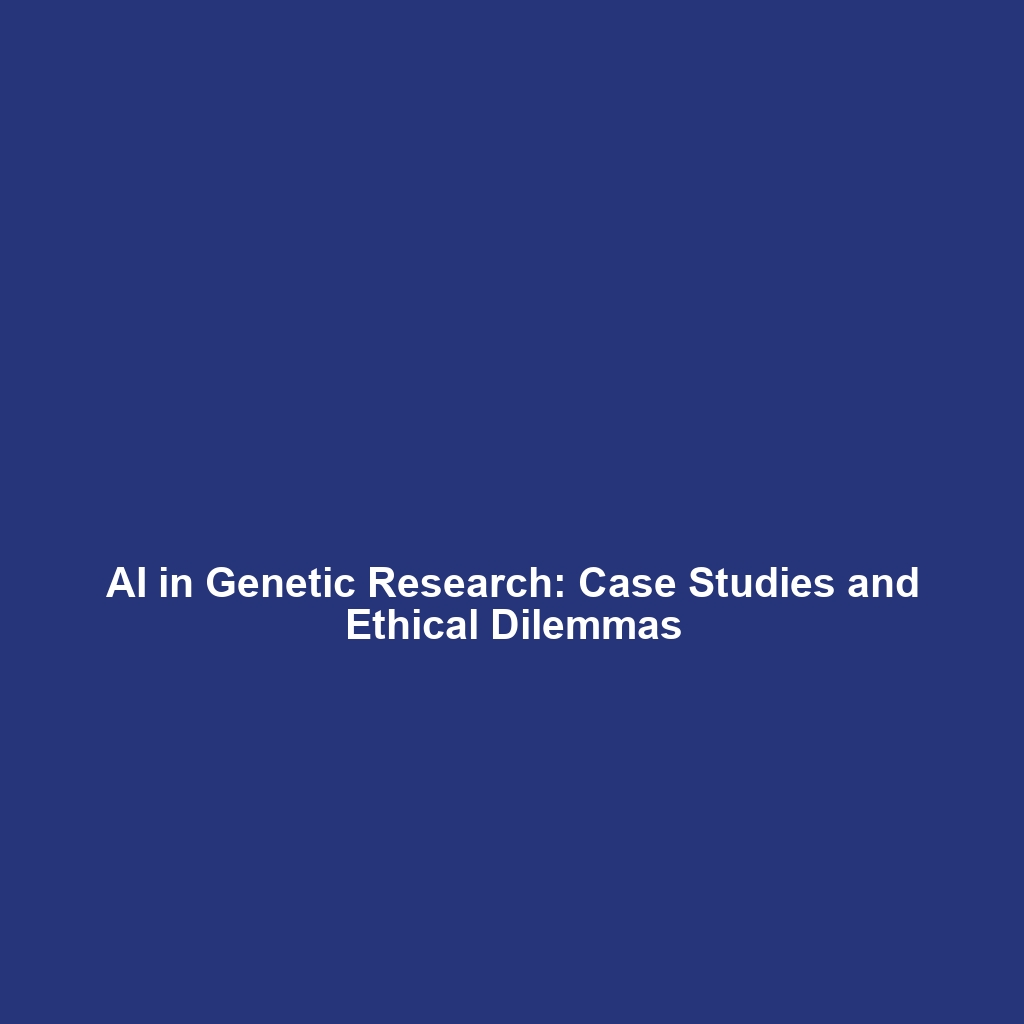Case Studies of AI in Genetic Research and the Ethical Debates They Spark
Introduction
Artificial Intelligence (AI) has transcended traditional boundaries, entering the realm of genetic research. Case studies that illustrate the use of AI technologies in this field not only showcase advancements in medical science but also ignite significant ethical debates that lie at the heart of AI Ethics. Issues such as data privacy, genetic discrimination, and informed consent are at the forefront of discussions, making this an urgent topic for modern society. Understanding these case studies is vital as they influence future regulations and ethical frameworks in AI-driven endeavors.
Key Concepts
Understanding AI in Genetic Research
AI’s integration in genetic research encompasses a variety of principles, including:
- Machine Learning: Algorithms that analyze large datasets to discover genetic patterns.
- Data Privacy: Ethical considerations around individuals’ genetic data usage.
- Informed Consent: The requirement for clear communication about how genetic data will be utilized.
These concepts are essential to grasp how AI technology is reshaping the genetic landscape and the ethical dilemmas that arise concurrently.
Applications and Real-World Uses
The applications of AI in genetic research hold immense potential. Notable uses include:
- Predictive Analytics: AI algorithms can predict an individual’s likelihood of developing genetic diseases.
- Personalized Medicine: Custom treatment plans based on an individual’s genetic makeup.
- Genetic Editing: Using AI to enhance precision in CRISPR technologies.
These real-world applications exemplify how AI in genetic research is tailored towards improving patient outcomes while raising questions surrounding ethical responsibilities and societal impacts.
Current Challenges
The implementation of AI in genetic research is not without its challenges:
- Data Security: Protecting sensitive genetic information from unauthorized access.
- Bias in Algorithms: Ensuring fairness in AI models to avoid genetic discrimination.
- Lack of Regulations: The need for comprehensive policies governing genetic data use.
Addressing these challenges of AI in genetic research is crucial to advancing ethical practices in the field.
Future Research and Innovations
Looking ahead, the future of AI in genetic research promises exciting innovations:
- AI-Driven Gene Therapy: Developments that leverage AI to enhance the effectiveness of gene therapies.
- Big Data Integration: Enhanced methods for synthesizing vast genetic datasets for better predictive analytics.
- Ethical AI Frameworks: Creation of comprehensive ethical guidelines to navigate the complexities of genetic data use.
These breakthroughs underscore a transformative era in genetic research, where technology harmonizes with ethical consideration.
Conclusion
In summary, the case studies of AI in genetic research illuminate the profound ethical debates that arise within the greater paradigm of AI Ethics. As advancements continue, it is imperative to engage with these issues to foster responsible innovation. For more information, explore related topics such as AI and Data Privacy and Ethics in Genetic Engineering.
This article is structured to ensure optimal SEO performance while providing valuable information on the intersection of AI, genetic research, and ethical considerations.
